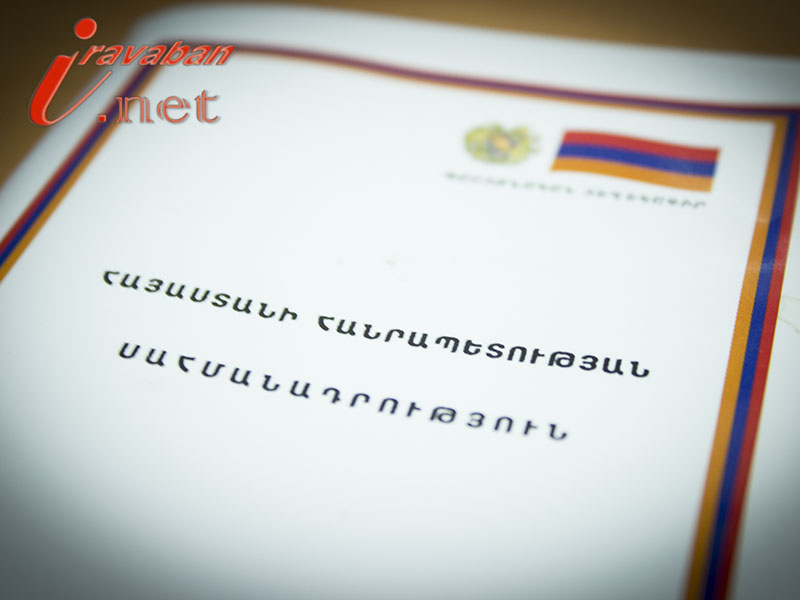The Constitution shall be adopted or amended by referendum, which may be initiated by the President of the Republic or the National Assembly.
The President of the Republic shall call a referendum upon the request or by agreement of the National Assembly. For such a decision of the National Assembly the majority votes of the total number of Deputies is required.
The President of the Republic may remand a Draft Constitution or the draft of constitutional amendments, within twenty one days following their submission back to the National Assembly, with his objections and suggestions, requesting a reexamination.
The President of the Republic will submit to a referendum within the period prescribed by the National Assembly a draft Constitution or draft constitutional amendments, when they are reintroduced by at least two thirds of the total number of Deputies of the National Assembly.
If the initiative belongs to the President of the Republic, the National Assembly shall, within a three month period following the receipt of the draft of the Constitution or amendments thereof, put the motion on holding a referendum on the draft to the vote. If the majority of the total number of the deputies of the National Assembly vote for the draft, the latter shall be deemed adopted and the President of the Republic shall submit the draft to a referendum on the date set up by himself.
Laws may be submitted to a referendum upon the request of the National Assembly or the Government in accordance with Article 111 of the Constitution.
Laws passed by referendum may only be amended by referendum.
A draft submitted to a referendum shall be considered adopted if it receives more than fifty percent of the votes, but not less than one fourth of the number of registered voters.
According to Article 114 of the RA Constitution Articles 1, 2 and 114 of the Constitution may not be amended.
Pursuant to Article 1 of the RA Constitution the Republic of Armenia is a sovereign, democratic, social state governed by the rule of law.
In the Republic of Armenia the power belongs to the people. The people exercise their power through free elections, referenda, as well as through state and local self-governing bodies and public officials, as provided by the Constitution. The usurpation of power by any organization or individual constitutes a crime.
The source: iravaban.net















